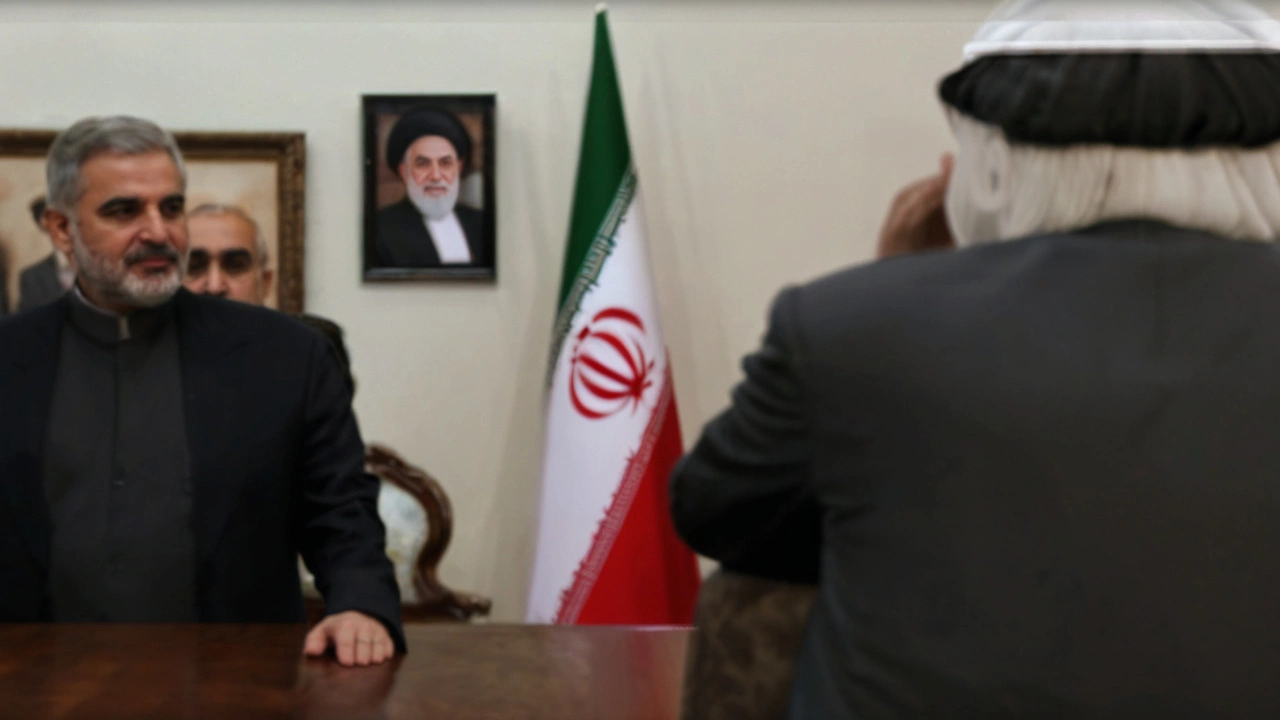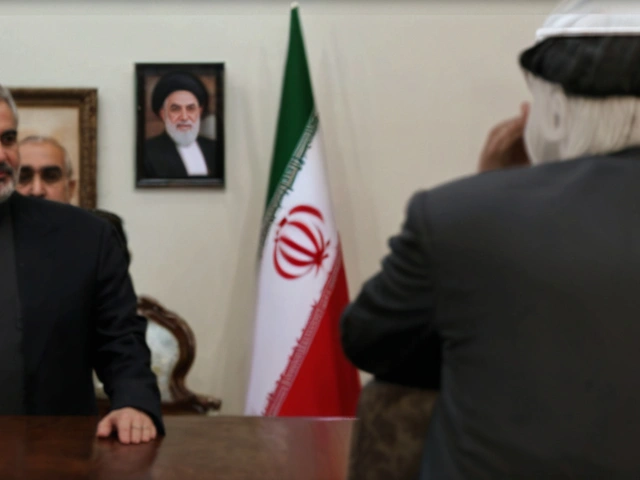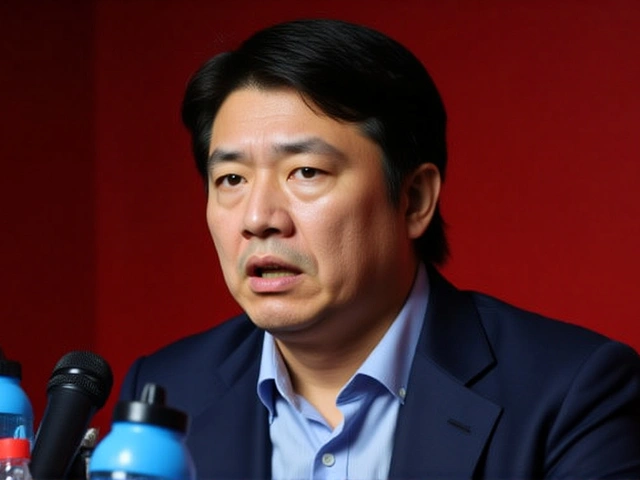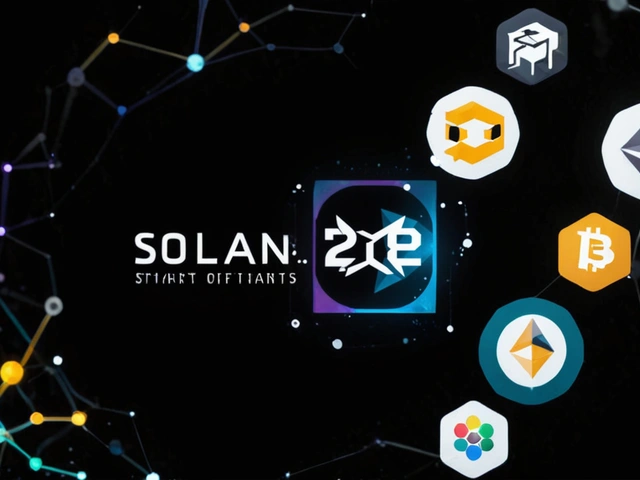
Ismail Haniyeh: His Role and Impact
Ismail Haniyeh's assassination in a missile strike in Tehran marks a critical juncture in Middle Eastern politics. Haniyeh, typically based in Qatar, rose to prominence as the face of Hamas's international diplomacy. Throughout his tenure, he was instrumental in shaping Hamas's strategies and outreach programs, often seen engaging with influential international figures and local leaders alike. His sudden death not only marks a significant loss for Hamas but also propels an already tense situation into unpredictable directions.
Haniyeh was more than a figurehead; he was a symbol of resistance and diplomacy. His efforts to expand Hamas's international relationships were noticed especially by allies like Iran. His influence was evident when he was photographed greeting Iranian official Masoudzeshkian on July 30, 2024. For Hamas and its allies, this relationship was crucial as it lent international depth to their cause against Israel. His assassination changes this dynamic dramatically.
The Context of the Conflict
The Middle East has been a tinderbox of conflict and alliances, with a delicate balance maintained by key players in the region. The strike that claimed Haniyeh’s life seems to be part of a larger Israeli strategy aimed at key figures in militant organizations that pose a threat to its security. Just a day before Haniyeh’s death, Israeli forces confirmed the death of a top Hezbollah military leader in Beirut. The Hezbollah leader was accused of masterminding a devastating rocket attack on the Israeli-controlled Golan Heights that resulted in the deaths of 12 children.
It is evident that the mosaic of conflicts involving Israel, Hamas, and Hezbollah is becoming increasingly complex. Each assassination reverberates through their networks, affecting both morale and operational capabilities. For Israel, these actions are seen as preemptive measures to incapacitate their adversaries' leadership and thus diminish their ability to organize attacks. However, such high-profile eliminations also risk escalating the conflict, potentially dragging in regional and international actors into deeper involvements.
Immediate Reactions and Responses
In the wake of Haniyeh's assassination, Hamas quickly labeled the event as an Israeli 'assault.' The narrative put forward by Hamas frames the strike as an act of aggression intended to cripple their leadership structure. This reaction is not unexpected and aligns with previous responses to similar incidents. They are calling for unity among their supporters and preparing for retaliatory actions. The sense of outrage and mourning is palpable among their base, further exacerbated by existing grievances against Israeli policies and military actions.
Internationally, Haniyeh’s death has raised eyebrows and concerns. Observers fear that this could be a catalyst for a broader regional conflict. Iran, a staunch ally of Hamas, might perceive this attack as a direct affront, potentially leading to more active engagements in the conflict. The assassination brings into sharp focus the fragile relations and the uneasy peace that often prevails in the region.
The Broader Implications
The aftermath of Haniyeh’s assassination could unfold in several complex ways. For one, it presents Hamas with a significant challenge in terms of leadership and morale. Finding a successor who commands the same respect and diplomatic acumen as Haniyeh will be no small feat. Internally, there may be power struggles as various factions within Hamas vie for influence. Leadership consistency during such turbulent times can make the difference between maintaining cohesion and falling into disarray.
For Israel, this operation is likely seen as a success in their broader strategy, but the repercussions could be severe. Increased hostilities are almost a certainty. Whether through rocket attacks, border skirmishes, or larger organized assaults, Hamas's retaliation could vary in form but will almost certainly aim to send a strong message of defiance.
Regional and Global Stakes
Beyond the immediate Israeli-Hamas dynamic, regional actors like Iran, Lebanon, and possibly even Turkey could react in their ways to these developments. Each actor has its agenda and alliances, and a change in the status quo such as this can tilt regional power balances. Iran, in particular, figures prominently due to its close ties with Hamas. They might opt to provide increased support either covertly or overtly, further complicating the situation.
Globally, this assassination is likely to draw reactions from major powers involved in Middle Eastern affairs. The United States, Russia, and European nations often find themselves entangled in these conflicts either directly or through diplomatic channels. Their responses will be critical in determining whether this incident escalates into a broader conflict or remains a concentrated flare-up.
Conclusion
As the dust settles from the missile strike that ended Ismail Haniyeh’s life, the Middle East stands at a pivotal moment. His assassination is more than just a calculated strike; it symbolizes the precarious nature of power dynamics in the region. It is a stark reminder of how one event can rip through political, military, and diplomatic frameworks, leaving nations to recalibrate their strategies. Whether this leads to a heightened conflict or some form of restrained retaliation remains to be seen. What is clear, however, is that Haniyeh’s death will resonate through the corridors of power and among the people of the Middle East for a long time to come.






They’re pulling strings behind the scenes, that missile was no accident.
Take a deep breath, folks. This situation is heavy, but staying informed and supporting peaceful dialogue can make a difference.
History repeats itself like a broken record, and each assassination writes another tragic stanza in the saga of the Middle East.
Wow, this is absolutely mind-blowing!!! 😱 The ripple effects are gonna be massive-people need to stay united and hopeful! 🌟💪
Oh sure, because diplomatic finesse always survives a missile strike-yeah, let's just pretend the region runs on polite tea parties. Reality check: power plays dominate.
Honestly, the media’s spin is as thin as paper-this is war, not a Hollywood drama, and the casualties are real, not just talking points.
Just watching the news and thinking how the world keeps turning while folks on the ground are counting losses. It's a heavy vibe.
Yo, Gary’s point hits-sometimes you gotta step back, sip some coffee, and watch the chessboard without getting all worked up.
Exactly! Let’s keep the convo constructive-focus on conflict‑resolution frameworks and avoid the echo‑chamber of blame. Peacebuilding starts with us.
We must condemn any targeting of political figures; such acts only deepen moral decay.
Wake up!!! This is a coordinated effort by the deep‑state to destabilize the region-every strike is a calculated move to keep us in fear!!!
From a philosophical standpoint, the assassination of Ismail Haniyeh can be seen as a manifestation of what Hegel would describe as the dialectic of negation, where an existing thesis (the diplomatic façade of Hamas) encounters an antithesis (the violent assertion of power by Israel). The resulting synthesis is not a simple resolution but a complex reconfiguration of regional power structures that inevitably breeds new contradictions. One might argue that this event reinforces the notion that political agency in the Middle East is perpetually contingent upon cycles of violence and retaliation. Moreover, the incident underscores the fragile interdependence of state and non‑state actors, illustrating how the removal of a single charismatic leader can trigger a cascade of factional realignments within Hamas and its allies. As scholars of international relations have long noted, leadership vacuums often give rise to opportunistic actors seeking to fill the void, potentially leading to more radical policy shifts. This is evident in historical precedents where the decapitation of militant hierarchies resulted in splinter groups adopting more extreme tactics. In parallel, the Israeli perspective may interpret this strike as a strategic success, yet it also risks amplifying anti‑Israeli sentiment across the populace, fueling recruitment drives for extremist factions. The broader geopolitical arena cannot ignore the ripple effects on Iran, which may interpret the loss of a key diplomatic conduit as an affront to its influence, prompting a recalibration of its regional engagement strategies. Simultaneously, external powers such as the United States, Russia, and the European Union will be forced to reassess their diplomatic postures, balancing condemnation of targeted killings with the imperative to prevent broader escalation. In essence, the assassination acts as a catalyst, accelerating existing tensions while simultaneously opening unforeseen avenues for both conflict and negotiation. It serves as a stark reminder that in geopolitics, individual actors, however prominent, are often pawns in a larger, inexorable game of power. Ultimately, the future trajectory will depend on how regional leaders and international stakeholders navigate the delicate balance between retaliation and restraint, a balance that will determine whether the region spirals into deeper chaos or, paradoxically, finds a pathway toward a tenuous peace.